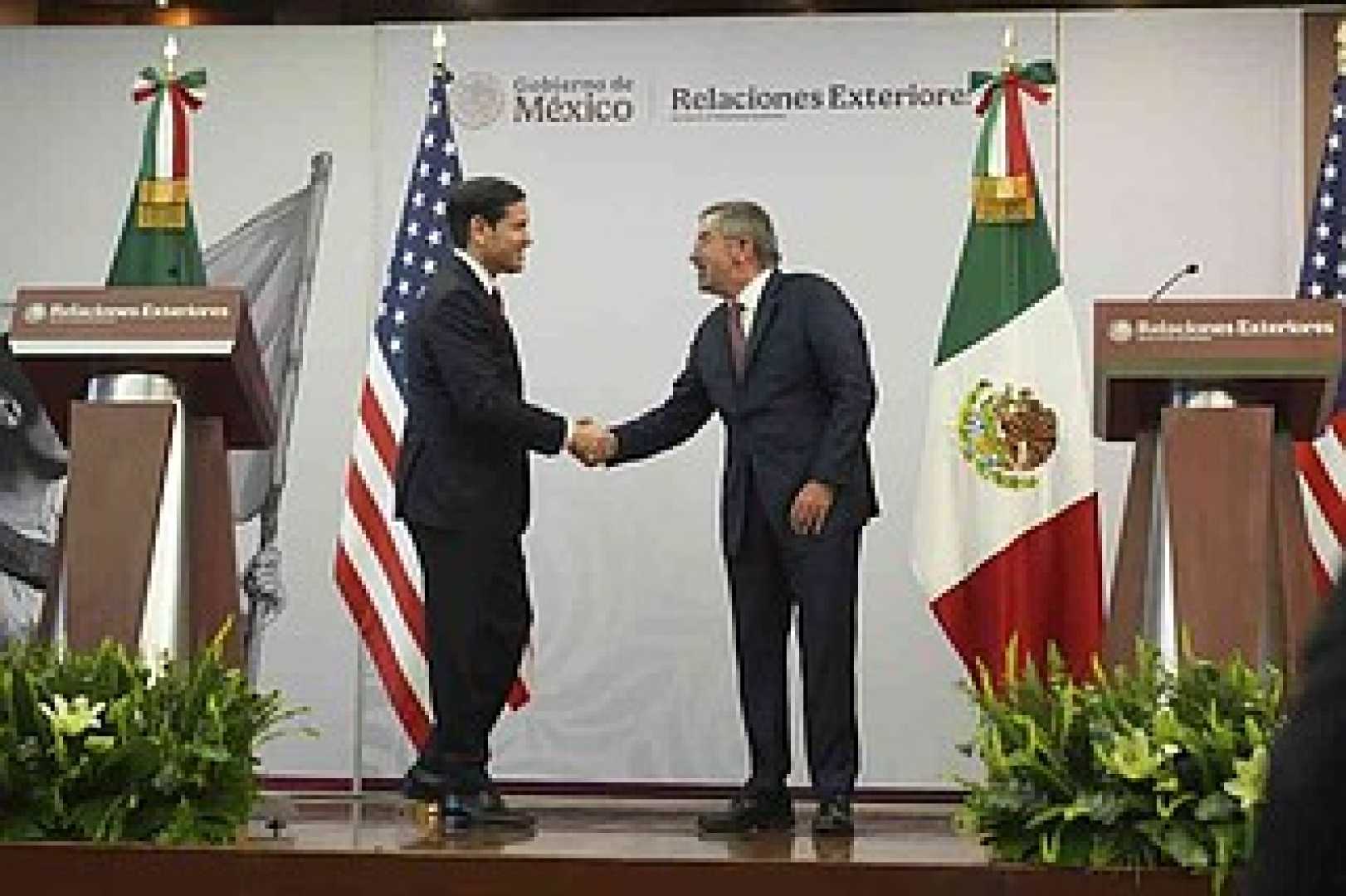News
U.S., Mexico Strengthen Security Collaboration Amid Sovereignty Concerns

Mexico City, Mexico – On Wednesday, U.S. Secretary of State Marco Rubio met with Mexican officials to reaffirm collaboration on cross-border security, including efforts to combat drug, gun, and fuel trafficking. This meeting occurred amid heightened concerns regarding U.S. intervention in the region.
Initially planned as the signing of a broader security agreement, the discussions instead reinforced ongoing cooperation between the two nations. The primary priorities remain halting the flow of fentanyl and other drugs into the U.S. and preventing high-powered firearms purchased in American stores from being smuggled into Mexico. Migration control efforts have seen significant reductions.
A significant development from the meeting was the establishment of a “high-level implementation group” aimed at maintaining strategic collaboration. Rubio emphasized the importance of this group, stating, “It’s the closest cooperation we’ve ever had, maybe between any country, but definitely between the U.S. and Mexico.”
Mexico’s Foreign Affairs Secretary Ramón de la Fuente echoed Rubio’s sentiments, insisting on the effectiveness of cooperation models. “It’s fundamental to show to U.S. society, Mexican society, that collaboration can be built that works and yields results,” he stated.
During his visit, Rubio also engaged with Mexican President Claudia Sheinbaum, underlining the U.S.’s commitment to security, trade, and migration collaboration. Sheinbaum expressed concerns regarding potential U.S. encroachment on Mexican sovereignty amidst ongoing diplomatic tensions.
The meeting followed a dramatic escalation in military measures by the Trump administration, which conducted a lethal strike against a Venezuelan drug cartel in the Caribbean, stirring controversy throughout the region. Critics argue this type of military engagement is a regression to historical forms of intervention that have destabilized Latin American nations.
Rubio defended the administration’s military strategies while downplaying details regarding airstrikes, stating, “The president has a right to eliminate imminent threats.” However, his Mexican counterpart, de la Fuente, reiterated the preference for “nonintervention, peaceful solution of conflicts.”
Sheinbaum, in her efforts to uphold Mexico’s sovereignty, has firmly rejected Trump’s insinuations regarding her stance on powerful drug cartels, emphasizing that the relationship with the U.S. must be respected. “Under no circumstance will we accept interventions or any acts detrimental to our sovereignty,” she stated in a recent address marking her first year in office.
While the U.S.-Mexico relationship continues to navigate complex geopolitical landscapes, the focus remains on mutual security interests and the continuing challenge posed by drug trafficking.












